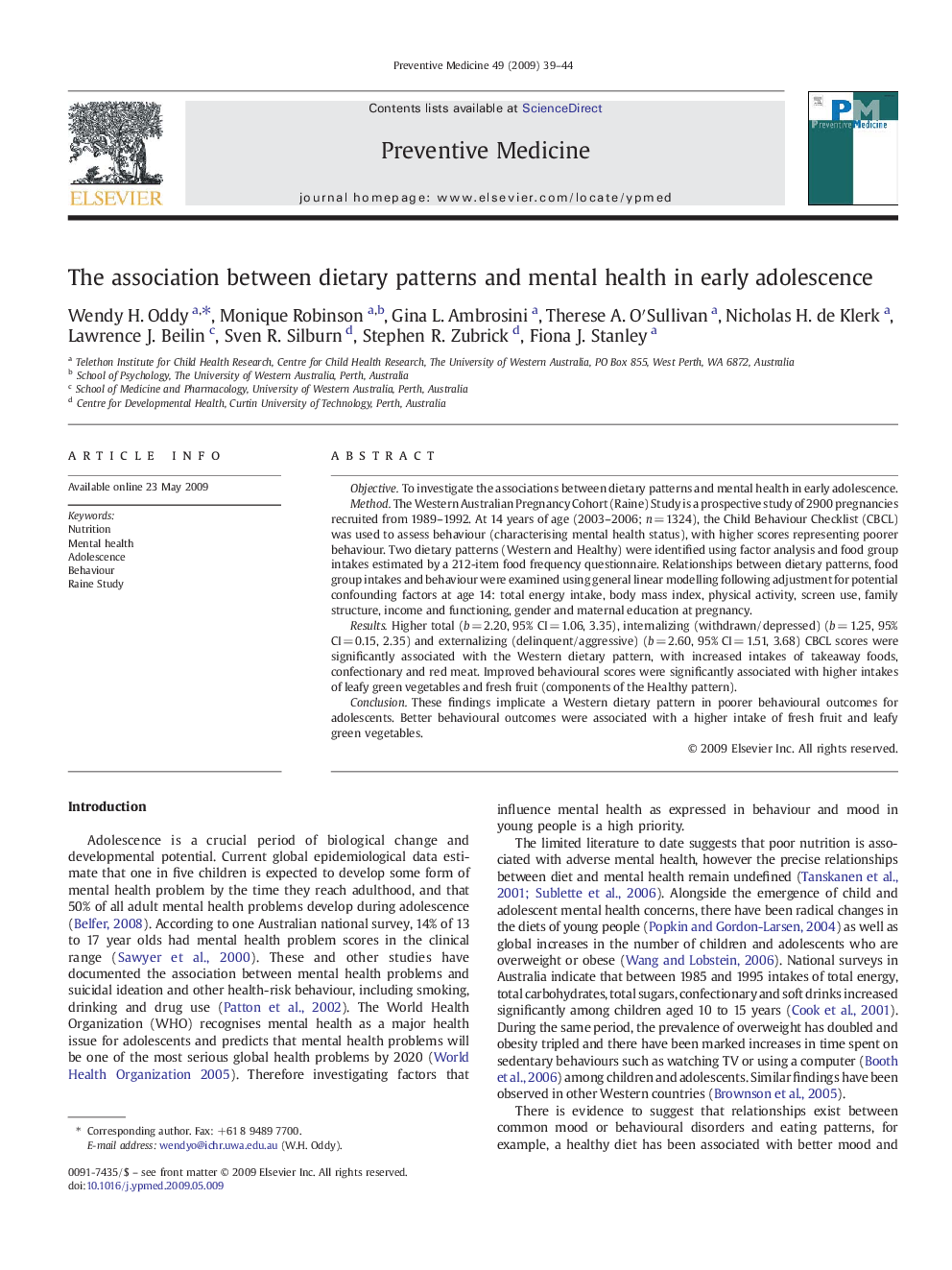| Article ID | Journal | Published Year | Pages | File Type |
|---|---|---|---|---|
| 3101205 | Preventive Medicine | 2009 | 6 Pages |
ObjectiveTo investigate the associations between dietary patterns and mental health in early adolescence.MethodThe Western Australian Pregnancy Cohort (Raine) Study is a prospective study of 2900 pregnancies recruited from 1989–1992. At 14 years of age (2003–2006; n = 1324), the Child Behaviour Checklist (CBCL) was used to assess behaviour (characterising mental health status), with higher scores representing poorer behaviour. Two dietary patterns (Western and Healthy) were identified using factor analysis and food group intakes estimated by a 212-item food frequency questionnaire. Relationships between dietary patterns, food group intakes and behaviour were examined using general linear modelling following adjustment for potential confounding factors at age 14: total energy intake, body mass index, physical activity, screen use, family structure, income and functioning, gender and maternal education at pregnancy.ResultsHigher total (b = 2.20, 95% CI = 1.06, 3.35), internalizing (withdrawn/depressed) (b = 1.25, 95% CI = 0.15, 2.35) and externalizing (delinquent/aggressive) (b = 2.60, 95% CI = 1.51, 3.68) CBCL scores were significantly associated with the Western dietary pattern, with increased intakes of takeaway foods, confectionary and red meat. Improved behavioural scores were significantly associated with higher intakes of leafy green vegetables and fresh fruit (components of the Healthy pattern).ConclusionThese findings implicate a Western dietary pattern in poorer behavioural outcomes for adolescents. Better behavioural outcomes were associated with a higher intake of fresh fruit and leafy green vegetables.
